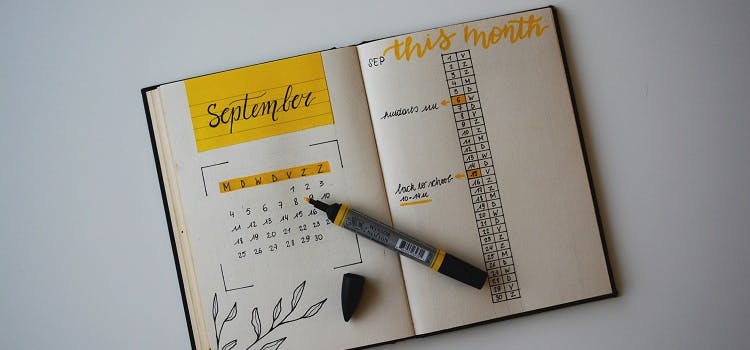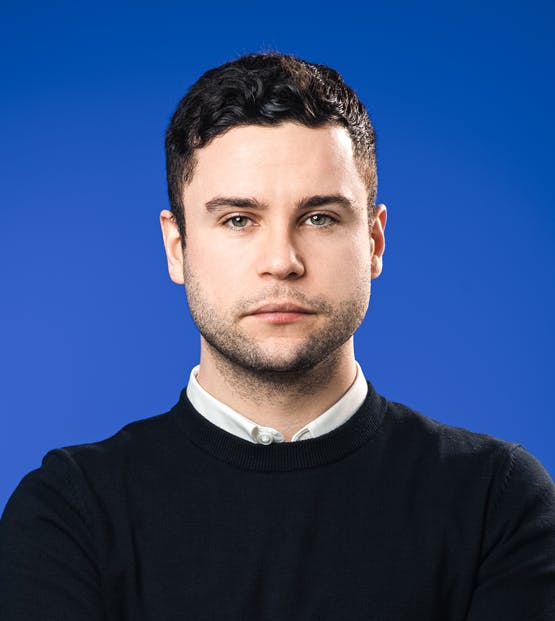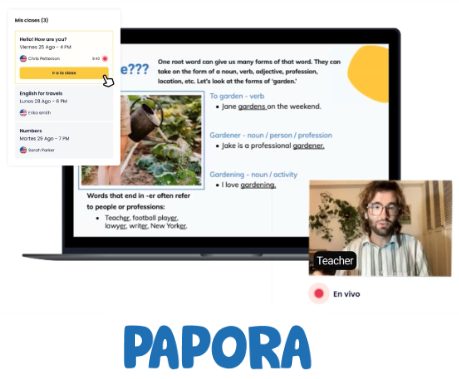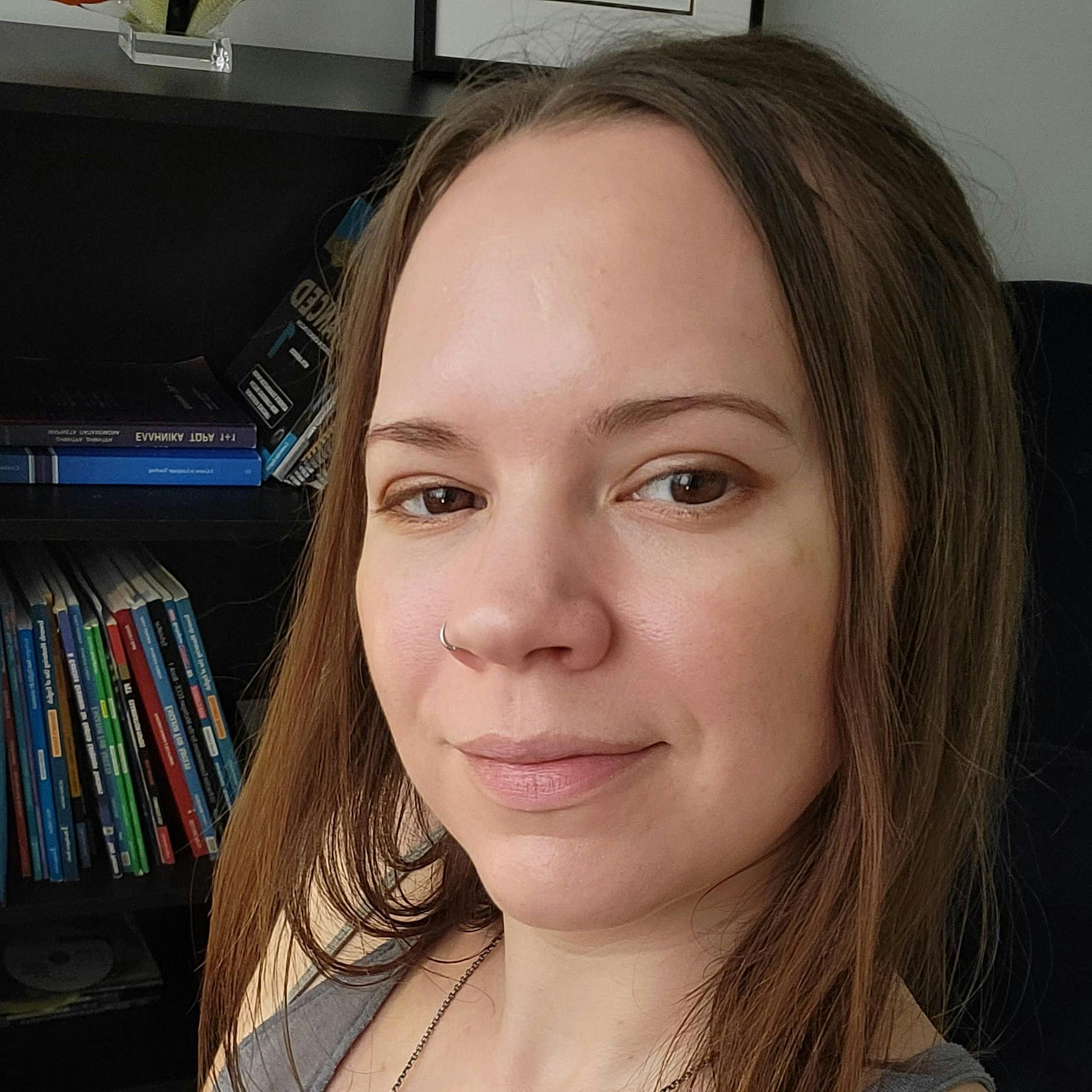Learning a new language is undoubtedly an activity that takes time, practice, and work. It's not something you can achieve overnight if you want to become fluent and proficient.
Every student has wondered at least once how long it takes to learn English, and the truth is there's no answer that doesn't depend on external factors and, above all, on dedication.
“It takes at least 7 years to master another language. You can learn to communicate in English in a short period of time, such as 6 months, by ordering food, having a simple conversation, and describing your daily routine. For more complex communication, small talk, and more nuanced interaction in English, it takes at least 5 years. It all depends on the time and energy you put into learning English. If you focus, learn with a teacher, in a group, or even immerse yourself in an English-speaking environment, you will be able to progress more quickly.”
The truth is, if you’re starting English from scratch and want to see results fast, you’ll need to dedicate consistent daily time and follow the right guidance.
That’s why we at Papora created this article—to break down the key factors in the learning process and explore how long it really takes to learn English.
Learn English at your own time and pace with Papora
Achieve your goal of fluent English with our dynamic exercises designed for you
Start now

Factors to consider when learning English
The time it takes to learn English varies depending on each student's situation. Their age, English level, learning style, goals, and method significantly influence the speed.

Your current English level
The first factor to consider when determining how long it will take you to become fluent in English is your level of English.
In English, the following code is used to determine each person's fluency based on their knowledge of the language.
- A0: Beginner.
- A1 - A2: Basic.
- A2 - B1: Pre-intermediate.
- B1: Intermediate.
- B2: Upper-intermediate.
- C1 - C2: Advanced.
If you're starting from scratch, with an A1 level of English, managing the basics you've learned in a couple of school classes, you probably won't learn as quickly as a student who already has a B1 level.
This is because they've already studied the language, have a well-defined method, and can understand many of the sentences through context.
Where do you want to go?

Another important point, one that most people overlook, is individual goals. When goals stay unclear, progress slows because practice loses direction. If daily conversations are part of your plan, this speaking English guide keeps your practice centred on the situations you’re working toward.
For example, if your medium-term goal is to leave your home country for an English-speaking country where you'll have contact with a native speaker, your motivation may increase, helping you progress much faster.
How much time per week will you practice?
The most important factor in determining how long it takes to become fluent in English is the number of study sessions.
That is, if you're focused on learning English in three months, a basic level, your weekly sessions should be varied, practical, and full of valuable content so that everyone can understand the content correctly.
If your practice sessions are daily, with valuable content and supported by reading, grammar, listening, vocabulary, and pronunciation exercises, like Papora's classes, they're likely to be much more effective than a 10-minute study session reading a textbook or dictionary.
What method will you use?
If you've already got everything else straight, it's time to ask yourself if you have the right method.
All students, regardless of their level, have different learning mechanisms, so the method they use is essential to achieving good results and reducing the time it takes to learn English.
The first thing you should do is consider whether you are a visual, kinesthetic, or auditory learner and evaluate which system helps you learn quickly and best. You have to use what works for you, not what works for everyone else.
“This depends on the student and their linguistic aptitude, etc. I would say it also depends on the way they learn a language. I don't believe in memorization, but rather in a holistic approach. For example, speaking is related to listening; in that case, a person should watch a television program or movie in English three times a week, 30 minutes each time, with subtitles. To increase grammar and vocabulary, reading is essential. There are also many free quizzes on the internet that offer the opportunity to practice English as a second language.”
Systems like Papora, which puts all areas of the language into practice, showing you new things in each class, are really useful.
What is the exact time it takes to learn English?
By understanding all the factors that can affect language learning, we can then determine an approximate timeframe for learning English.
If you want to learn English in 7 days, you should keep in mind that you'll only learn the basics. However, if you focus on speaking, writing, and reading fluently, the timeframe can extend for years.

By studying 4 hours a week, going at your own pace, you can reach level C1 in approximately 5 or 6 years. By studying consistently and putting in daily effort with small activities, you can achieve English proficiency. (How Long Does It Take to Learn English? - Papora)
Now, if you want to quickly achieve your goal of becoming fluent in one year, you must study at least 5 hours a day, immersed in the language completely. (How Long Does It Take to Learn English? - The Globe)
As we've already said, everyone is different. An adult will take longer to learn than a child, and everything will depend on each situation.
Tips for Successful English Learning
If after all this, you're wondering how you can learn English, here are a few tips to help you get off to a good start.
Stop Seeing It as a Boring Activity
Learning English doesn’t have to be boring or feel like studying for an exam—it’s about discovering something new that will truly benefit you.
Make it fun: try enjoyable learning methods, connect with others who want to speak English, and most importantly, find what works best for you. That way, traditional, tedious study will feel like a thing of the past.
Organize your study time
Create your study schedule, decide in an organized way what hours of the day or week you will use to learn English, and divide them into activities that suit you and what you want to achieve.

Use a method
As we've already mentioned, a good system is crucial to achieving a good level in the language, which is why you should find the right one for you.
There's Malcolm Gladwell's method, which proposes that practice isn't what you do when you're good. It's what you do to become good. He asserts that anyone can become an expert by investing 10,000 hours in study or practice.
On the other hand, there are more practical methods like Papora, which proposes learning English in a fun and dynamic way with real-life situations, teaching you what you need to become an expert at your own pace. Start learning now.
Bring notebooks
Creating your own study guide with everything you've learned to practice from time to time is also very helpful.
“Try to keep organized notebooks with different sections for different vocabulary items. One section for phrasal verbs, another for food-related vocabulary, another for greetings, etc. This way you can easily review them later.”
While studies determine different times it takes to become fluent in English, remember that everything depends on you and your determination, whether you attend classes at an English academy in Granada or anywhere else in the world.
Frequently asked questions about how long it takes to learn English
Learning to speak English fluently can take 5 to 7 years of consistent learning. This will depend on the amount of time spent studying the language, the method used, and the internal and external factors that influence the process.
If you're looking to learn English quickly, studying 5 hours a day could help you reach an intermediate level in about a year. However, it's recommended to study at least 30 minutes a day using the right techniques to achieve effective results.






